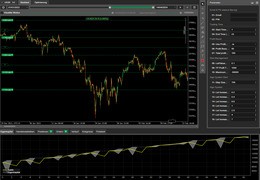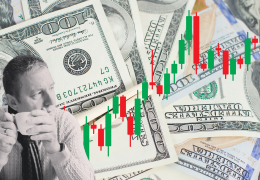Between reality and illusion If you want to know what trading really means—beyond luxury cars, piles of cash, and...
Search in blog
Blog categories
- FAQ – Your guide through the world of finance and technical facilities (2) click
- Daytrading Almanac (27) click
- Press release (23)
- Educational (26) click
- Projects (9)
- Chart analysis (39) click
- Trading bots for cTrader (11)
- AI in trading (5)
- Trading Strategien (11)
- Trading signals and stock market letters (46)
Latest posts

When it comes to traders, social media platforms often create a rather one-sided image: a young face smiling at the...

The TegasFX Instant Funding program sets a new standard for traders seeking quick access to capital without having to...

Backtesting trading strategies is an essential tool for traders who want to validate their methods across historical...

introduction In the world of trading, it can be challenging to balance the intense market activity and the rapid...
Popular posts





Featured posts





Photo gallery
No featured images
Archived posts
Top authors
-
 Christian Lill 70 Posts View posts
Christian Lill 70 Posts View posts -

-

-

-

Psychology of Trading: How to Avoid Emotional Decisions
The role of psychology in trading
Trading requires making quick decisions under uncertainty and stress, which can lead to emotional reactions. These emotions can cloud judgment and lead to irrational decisions. Two of the most common emotions that influence traders are fear and greed.
-
Fear : Fear can cause traders to close positions too early to avoid losses, even when market conditions remain favorable.
-
Greed : Greed can cause traders to hold positions for too long in the hope of even greater gains, often resulting in significant losses.
Controlling your own emotions is crucial to acting in a disciplined and successful manner.
Common emotional pitfalls
-
Overtrading
Overtrading is the frequent opening and closing of positions without a clear strategy. This is often triggered by the need for action or the attempt to quickly recoup losses. Overtrading can lead to high transaction costs and significant losses.
-
Revenge Trading
Revenge trading is the attempt to recoup losses through impulsive and risky trades. This type of trading is often emotionally driven and leads to even greater losses.
-
FOMO (Fear of Missing Out)
Fear of missing out on a potentially profitable opportunity can lead to impulsive decisions. Traders often jump on trends without sufficient analysis, only to later discover that they got in too late.
-
Confirmation bias
Confirmation bias is the tendency to only seek out or believe information that supports one's beliefs. This can cause traders to ignore warning signals and hold on to losing positions.
Strategies to avoid emotional decisions
-
Create a trading plan
A well-thought-out trading plan can help avoid emotional decisions. The plan should include clear rules for entries and exits, position sizes and risk management. By strictly adhering to this plan, you can minimize emotional reactions.
-
Use stop loss and take profit orders
Stop-loss orders help limit losses by automatically closing a position when the price reaches a certain point. Take-profit orders lock in profits by closing a position when a target price is reached. These orders can help eliminate emotional decisions by automating the trading process.
-
Keep a trading diary
A trading journal can help identify emotional patterns and mistakes. Write down every trade, including the reasons for entering and exiting, the profits or losses made, and the emotions that played a role. This reflection can provide valuable insight and help avoid future emotional mistakes.
-
Regular breaks and cooling periods
Taking regular breaks can help you keep a clear head and avoid stress-related mistakes. When a trade goes wrong or the markets are particularly volatile, a short break can help you regain perspective and avoid emotional decisions.
The importance of mental discipline
Mental discipline is key to avoiding emotional decisions. Here are some tips to strengthen mental discipline:
-
Visualize success : Positive visualization techniques can help boost self-confidence and increase mental discipline.
-
Meditation and mindfulness : These techniques can help calm the mind and improve concentration.
-
Physical health : A healthy diet, regular exercise and adequate sleep can improve mental performance and reduce stress.
The role of mentors and trading communities
Mentors and trading communities can provide valuable support. An experienced mentor can help identify emotional pitfalls and develop strategies to cope. Trading communities provide an opportunity to share experiences, learn from others, and receive emotional support during difficult times.
Conclusion
The psychology of trading is a crucial component of success. By becoming aware of the most common emotional pitfalls and developing strategies to avoid emotional decisions, one can greatly increase the chances of long-term success. Discipline, self-reflection and continuous learning are the keys to maintaining emotional control and trading successfully.
Discussion stimulus
What emotional challenges have you experienced in trading? What strategies have you used to avoid emotional decisions? Share your experiences and tips in the comments and let's learn together!
Leave a comment
Related posts
 Day Trading Almanac Foreword
Day Trading Almanac Foreword
 History of day trading
History of day trading
 Choosing the right trading platform
Choosing the right trading platform
 Case study: Automated trading (bot trading) and its impact on retail investors’ leisure activities
Case study: Automated trading (bot trading) and its impact on retail investors’ leisure activities
